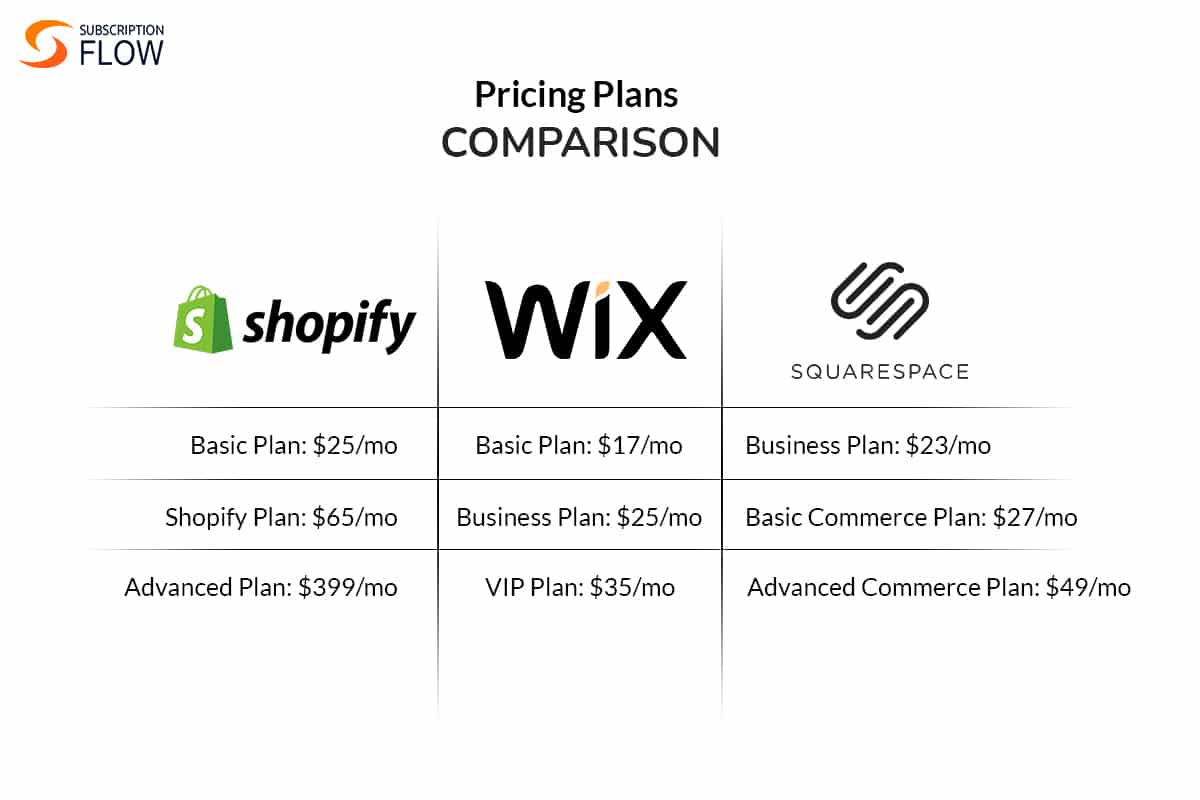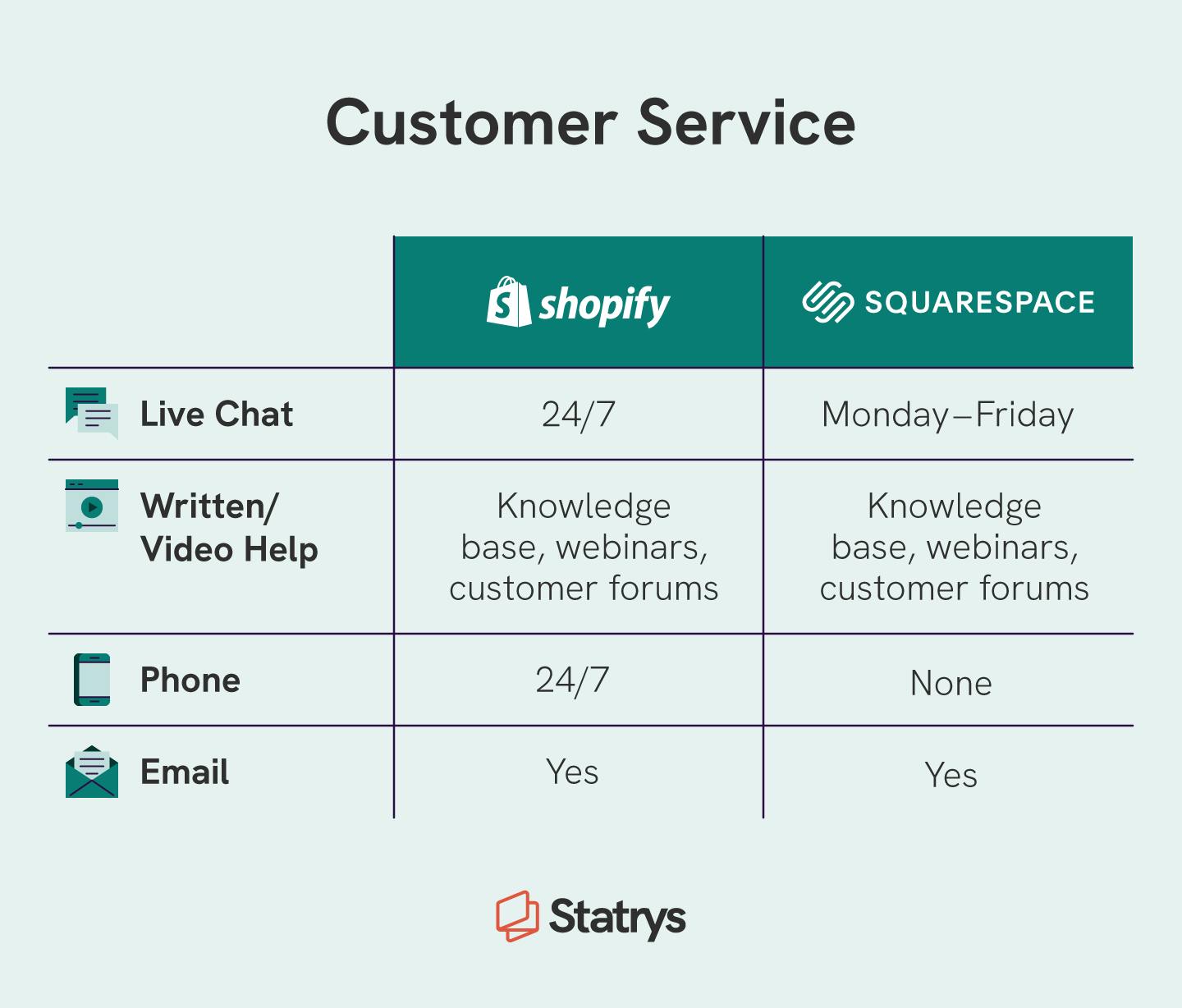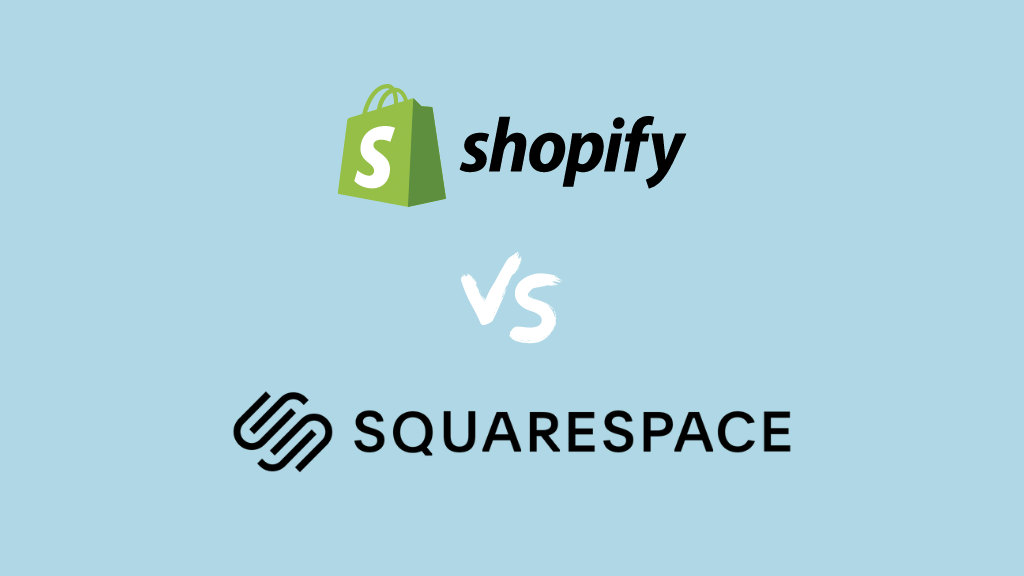Shopify and Squarespace are popular tools for building online stores. Both have unique features and benefits.
Choosing the right platform for your online business can be challenging. Shopify and Squarespace offer distinct advantages that cater to different needs. Shopify is known for its powerful e-commerce capabilities, while Squarespace shines with its sleek, customizable designs. Understanding the differences between these platforms is crucial for making an informed decision.
Click Here To Get Promo Code & Full Shopify Review With Extra Bonuses
In this post, we will explore the key differences between Shopify and Squarespace. This will help you determine which platform suits your business needs best. Stay tuned to learn more about these two options.
Click Here To Get Promo Code & Full Squarespace Review With Extra Bonuses

Credit: www.subscriptionflow.com
Platform Features
Choosing the right platform for your online store is crucial. Shopify and Squarespace are popular options. Both have unique features. Understanding these can help you decide which is better for your needs.
Shopify Features
Shopify is a dedicated e-commerce platform. It offers many features for online stores. One key feature is its extensive app store. This allows you to add extra functionalities. You can integrate with payment gateways. Shopify supports over 100 payment options.
Another feature is its inventory management. You can track stock levels easily. Shopify also provides detailed analytics. You can monitor sales and customer behavior. Shopify’s themes are customizable. You can make your store look unique. It also offers excellent customer support. Help is available 24/7 via chat, email, or phone.
Squarespace Features
Squarespace is known for its beautiful designs. It is a website builder first, e-commerce platform second. It offers stunning templates. These are perfect for showcasing products. Squarespace has built-in SEO tools. You can optimize your site for search engines easily.
It also offers robust blogging features. This can help with content marketing. Squarespace’s e-commerce tools are simpler. You can manage inventory, but it is less comprehensive than Shopify. Payment options are limited. You can use Stripe or PayPal. Customer support is available, but not 24/7. You can contact them via email or live chat.
Ease Of Use
Understanding the ease of use is crucial when choosing between Shopify and Squarespace. Both platforms aim to provide a user-friendly experience. But their approaches differ. Let’s explore these differences in detail.
User Interface
Shopify offers a clean, intuitive interface. It focuses on simplicity. Users can easily navigate through the dashboard. Adding products and managing orders is straightforward. The layout is designed for quick access.
Squarespace also has a user-friendly interface. It emphasizes visual appeal. The drag-and-drop editor makes designing easy. Users can see changes in real-time. This feature helps in creating a visually stunning website.
Learning Curve
Shopify has a gentle learning curve. Beginners can get started quickly. The platform provides numerous tutorials. These resources help users understand the basics. Advanced features are also accessible for experienced users.
Squarespace has a steeper learning curve. Its design-focused tools require some practice. Users need time to master the drag-and-drop editor. But once familiar, it becomes a powerful tool. The platform also offers guides and support.
Design And Customization
Choosing the right platform for your online store is crucial. Design and customization play a significant role in this decision. Shopify and Squarespace offer different options and flexibility levels. Let’s explore these aspects in detail.
Template Options
Both Shopify and Squarespace provide a wide range of template options. Shopify offers over 70 professional templates. These templates cater to various industries and styles. Shopify’s templates are mobile-responsive and optimized for e-commerce. Users can browse through categories to find the perfect match.
Squarespace, on the other hand, boasts over 100 beautifully designed templates. These templates focus on visual appeal and creativity. Squarespace templates are also mobile-responsive. They are suitable for different types of websites, not just e-commerce.
Customization Flexibility
Customization flexibility is crucial for a unique online presence. Shopify provides extensive customization options. Users can edit the HTML and CSS of their templates. This allows for advanced design changes. Additionally, Shopify’s app store offers various plugins. These plugins extend the functionality of your store.
Squarespace offers a more guided approach to customization. Users can drag and drop elements to create their desired layout. While this is easy for beginners, advanced customization is limited. Squarespace does not allow direct HTML or CSS editing. Users rely on built-in design options and a limited set of plugins.
| Feature | Shopify | Squarespace |
|---|---|---|
| Template Options | 70+ professional templates | 100+ creative templates |
| Mobile-Responsive | Yes | Yes |
| HTML/CSS Editing | Yes | No |
| Drag and Drop | No | Yes |
| Plugin Availability | Extensive | Limited |

Credit: statrys.com
E-commerce Capabilities
E-commerce capabilities are crucial for any online business. Shopify and Squarespace both offer tools for building and managing online stores. However, their approaches to e-commerce differ in key areas. Understanding these differences can help you choose the right platform for your needs.
Product Management
Shopify provides extensive product management features. You can add, edit, and organize products with ease. It supports unlimited products and multiple product variations.
Squarespace also offers robust product management. It includes features like product tagging and categorization. However, it has a limit on the number of products you can add.
Payment Processing
Shopify supports a wide range of payment gateways. This includes PayPal, Stripe, and over 100 other options. Shopify Payments, its built-in gateway, offers competitive transaction fees.
Squarespace supports fewer payment gateways. It primarily integrates with Stripe and PayPal. This may limit your choices for payment processing. But, it ensures a seamless and straightforward setup.
Pricing And Plans
Choosing the right eCommerce platform involves understanding pricing and plans. Shopify and Squarespace have different pricing structures. This section breaks down their costs so you can make an informed decision.
Shopify Pricing
Shopify offers three main pricing plans. The Basic plan costs $39 per month. It includes all core features. The Shopify plan costs $105 per month. It adds more detailed reports and lower transaction fees. The Advanced plan costs $399 per month. This plan offers advanced reporting and the lowest transaction fees. Shopify also provides a custom enterprise plan called Shopify Plus. Pricing for this plan varies based on your needs.
Squarespace Pricing
Squarespace offers four pricing plans. The Personal plan costs $16 per month. It includes basic website features but no eCommerce tools. The Business plan costs $23 per month. It includes eCommerce features and advanced website options. The Basic Commerce plan costs $27 per month. It adds more eCommerce tools and no transaction fees. The Advanced Commerce plan costs $49 per month. It offers all eCommerce features including abandoned cart recovery. Squarespace does not offer a custom enterprise plan.
Seo And Marketing Tools
Both Shopify and Squarespace offer robust SEO and marketing tools. These tools help improve your online store’s visibility. They also drive traffic and boost sales. Let’s explore the key features of each platform.
Seo Features
Shopify provides extensive SEO features. It allows you to edit meta tags, add alt text to images, and create custom URLs. Shopify also generates a sitemap and robots.txt file automatically. This helps search engines index your site better.
Squarespace also offers solid SEO capabilities. It allows you to customize meta titles, descriptions, and image alt text. Squarespace also has built-in XML sitemaps. This ensures search engines can crawl your site efficiently.
Marketing Integrations
Shopify excels in marketing integrations. It connects with many apps for email marketing, social media, and PPC ads. You can integrate with MailChimp, Facebook, Google Ads, and more. This makes it easy to run marketing campaigns.
Squarespace offers several marketing integrations too. It connects with Mailchimp, Google Ads, and social media platforms. Squarespace Email Campaigns is a built-in tool for email marketing. It simplifies your outreach efforts.
Customer Support
Customer Support is crucial when selecting an e-commerce platform. It can make or break your experience. Shopify and Squarespace both offer robust support systems, but they differ in several ways. Let’s explore the support channels, community, and resources each platform provides.
Support Channels
Shopify provides 24/7 support through various channels. These include:
- Live Chat
- Phone
- Social Media
This ensures that help is always available. You can reach out anytime.
Squarespace offers support via:
- Live Chat
Live chat is available Monday to Friday, 4 AM to 8 PM EST. Email support is available 24/7. Unlike Shopify, Squarespace does not offer phone support.
Community And Resources
Both platforms have rich communities and resources.
Shopify boasts a large, active community. It includes:
- Forums
- Help Center
- Video Tutorials
- Webinars
Additionally, Shopify has a dedicated Academy with free courses.
Squarespace also has valuable resources. It includes:
- Community Forum
- Help Articles
- Webinars
- Video Workshops
Squarespace’s resources are comprehensive. They cater to both beginners and advanced users.
In summary, both platforms offer solid support and resources. Shopify’s 24/7 phone support is a key difference. Squarespace’s resources are detailed and user-friendly.

Credit: www.stylefactoryproductions.com
Frequently Asked Questions
What Are Shopify And Squarespace?
Shopify and Squarespace are popular website builders. Shopify specializes in e-commerce, while Squarespace offers versatile website creation tools.
Which Is Better For Online Stores?
Shopify is better for online stores. It offers extensive e-commerce features, including payment gateways, inventory management, and shipping options.
Can I Use Shopify For Blogging?
Yes, you can use Shopify for blogging. However, Squarespace offers more comprehensive blogging tools and templates.
Which Platform Offers Better Design Flexibility?
Squarespace offers better design flexibility. It provides a wide range of customizable templates and design options.
Conclusion
Choosing between Shopify and Squarespace depends on your business needs. Shopify excels in e-commerce features. Squarespace offers stunning templates and ease of use. Both platforms have strengths and weaknesses. Assess your priorities carefully. Consider your budget, design preferences, and technical skills.
Shopify suits larger online stores. Squarespace works well for smaller sites with fewer products. Evaluate your goals and make an informed decision. Both options provide excellent support and resources. Your choice will impact your online presence. Make the best decision for your business growth.

